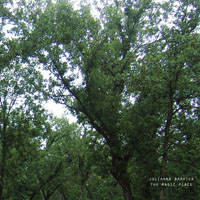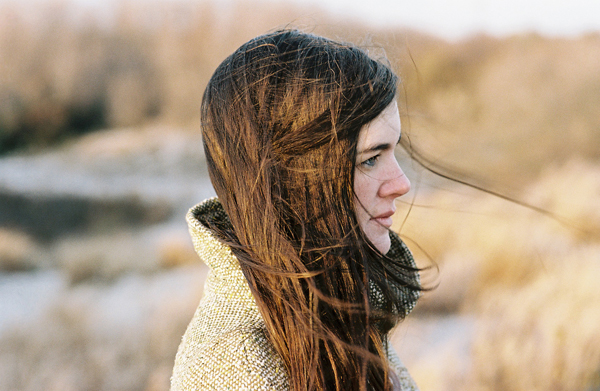 Julianna Barwick: The Magic Place (Asthmatic Kitty, 2/22/11)
Julianna Barwick: The Magic Place (Asthmatic Kitty, 2/22/11)
Julianna Barwick: “The Magic Place”
[audio:https://alarm-magazine.com/wp-content/uploads/2011/01/julianna_barwick_-_the_magic_place_-_the_magic_place.mp3|titles=Julianna Barwick: “The Magic Place”]Since her self-released album Sanguine in 2006, Julianna Barwick has been experimenting with the human voice to create loop-based compositions that turn the concept of a cappella into something completely new and uncharted. Contributor Jeff Terich discusses these atypical methods with Barwick, in addition to how her music is informed by collaboration and personal memories, as she readies the release of her new album, The Magic Place.
The Magic Place has some additional instrumentation, compared to your previous release, Florine. What led you to decide to add some of these extra elements?
I was excited about incorporating some more instrumentation into this record, and when I had the opportunity to use a friend’s space, filled with lots of fun instruments to use, it made it easier to experiment. I especially could not resist the grand piano, which shows up tons on the new record.
Do you find it more challenging to write songs from limited sources? Or is there more liberation in writing vocal-only compositions?
For me, the music that is all vocal is very easy and intuitive for me — it’s when I’m adding instrumentation that it becomes challenging, trying to make the sounds from the instruments fit with the vocals. Making the vocal loops is all done on the spot, so there’s no real pressure that I feel when doing that at all.
When you write songs, how does the process typically begin? Do you ever start with a different instrument and then translate to voice?
Ninety-five percent of the time I’m starting with a vocal loop I’ve made, and building on top. But there are exceptions; for instance, “Unt1,” on Sanguine, started with a guitar line. On the new record there are a couple that started with an instrument; for instance, “Vow” starts with piano and “Bob in Your Gait” starts with guitar. There’s also some stripped-down / non-loop vocalizing on this record, which is new.
You’ve said that The Magic Place was named after a tree from your childhood. How much did memory or nostalgia influence the creation of the album?
To be honest, it was definitely created with feelings and experiences of the present time in mind. With that being said, the way I create, and the head space that I get in when I’m making music, is a lot like the feeling I would get as a child and in places that I found magical or wonderful. I would always sing to myself. I would get carried away into my own world.
Your music has been described in various terms from “hymns” to “ambient.” Do you view your own music as something separate from pop music?
Definitely. I don’t think pop is an accurate description at all. When I think pop, I think something I wanna boogie to. I’m still trying to get good at describing my own music! I completely understand the ambient or liturgical connections. My music is heavily informed by my upbringing singing in church or school.
Where will you take your music next? Are we likely to see more collaboration in your future?
I think the music is naturally progressing; the first record was very stripped down, and things have taken a natural course as far as becoming more dynamic. I am definitely interested in some collaboration in the future, just not sure who or what yet.

